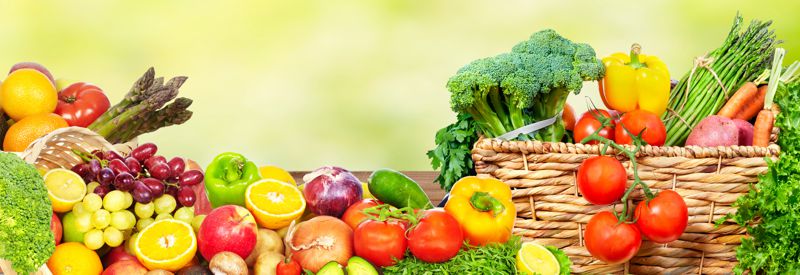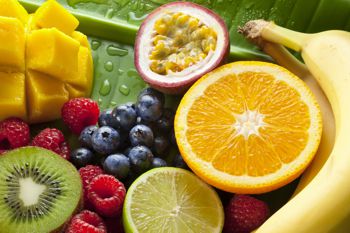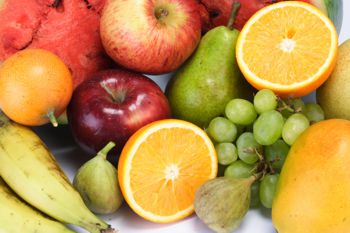 As more consumers choose organic products, food safety has become a key priority for businesses in the organic industry. Whether you’re a small family farm or a large food processor, meeting food safety standards is no longer optional. Critical for building trust with customers, opening doors to new markets, and protecting your brand’s reputation.
As more consumers choose organic products, food safety has become a key priority for businesses in the organic industry. Whether you’re a small family farm or a large food processor, meeting food safety standards is no longer optional. Critical for building trust with customers, opening doors to new markets, and protecting your brand’s reputation.
This article will explain why food safety matters for organic products. The main regulations you need to follow, and how organic certification can help your business meet consumer expectations.
Why Food Safety Is Important for Organic Products
Consumers choose organic food because they believe it’s healthier, safer, and better for the environment. But with this trust comes responsibility. Farmers grow organic food without using synthetic pesticides or genetically modified organisms (GMOs). But it still needs strict safety measures to prevent contamination and harmful bacteria.
Food safety isn’t just about avoiding harmful chemicals. It’s about keeping the entire process, from farm to table, safe and transparent. Whether you grow, process, or sell organic products, you must follow strict guidelines to ensure your food is safe for consumers.
As the organic food market grows in 2025, businesses that prioritize food safety will be better prepared for success. By obtaining the proper certifications and adhering to best practices, you can comply with regulatory standards. Foster stronger relationships with consumers who prioritize transparency and quality.
Key Regulations for Organic Food Safety
 The National Organic Program (NOP) regulates organic food in the U.S… The U.S. Department of Agriculture (USDA) runs this program. The NOP sets rules for organic certification and food safety, covering everything from soil health to pest control. Here are the key regulations you need to know:
The National Organic Program (NOP) regulates organic food in the U.S… The U.S. Department of Agriculture (USDA) runs this program. The NOP sets rules for organic certification and food safety, covering everything from soil health to pest control. Here are the key regulations you need to know:
- National Organic Program (NOP) Standards
The NOP requires organic products to be grown without synthetic pesticides, herbicides, or fertilizers. This does not imply “chemical-free.”, organic farmers use approved alternatives, like natural solutions for pest control and soil management. - Good Agricultural Practices (GAPs)
Organic farmers must follow Good Agricultural Practices (GAPs). Which reduce the risk of contamination from harmful bacteria like E. coli and Salmonella. GAPs include keeping farms clean, maintaining good records, and ensuring worker hygiene. - Food Safety Modernization Act (FSMA)
The FSMA focuses on preventing tainting before it happens. This law applies to both organic and conventional farms and requires farmers to take steps to keep their food safe from hazards. - Organic Certification Requirements
A USDA-accredited certifier must inspect a business to sell organic products. The process includes reviewing records, inspecting your facilities, and making sure you follow all organic rules.
Challenges in Organic Food Safety
While organic certification is thorough, there are some challenges businesses face when ensuring food safety:
- Corruption Risks
Non-organic sources can still expose organic products to contamination. Pesticides from nearby farms or equipment used for both organic and non-organic products. Keeping organic and non-organic operations separate is crucial. - Record Keeping
Organic certification requires detailed records of everything—inputs, processes, audits, and more. Keeping accurate records is time-consuming, but it’s necessary to provide traceability in organic products. - Supply Chain Accountability
Organic standards require complete transparency throughout the supply chain. As food production becomes more complex, tracking products from farm to table can be challenging. But doing so helps prevent Corruption and boosts consumer confidence.
How Organic Certification Helps with Food Safety
Getting organic certification isn’t just about labeling your products as “organic.” But making sure your business follows the highest standards of food safety and quality. Here’s how certification can benefit your business:
- Builds Consumer Trust
USDA organic certification reassures consumers that your products are safe. Free from harmful chemicals and grown under strict food safety standards. - Opens New Markets
Organic certification helps you access new markets. Many retailers and distributors only carry certified organic products, so certification can expand your business opportunities. - Ensures Compliance
Certification ensures your business follows both organic and general food safety regulations, minimizing the risk of fines or penalties. - Improves Transparency and Accountability
The certification process involves regular audits that highlight areas for improvement and ensure your business remains compliant. This transparency builds trust with both consumers and regulators.
Choosing the Right Organic Certification Partner
When selecting a certification body, it’s important to choose one that can support your business’s needs. Here’s what to look for:
- Accreditation: Ensure the certifier is USDA-accredited or recognized by a trusted body.
- Experience: Find a certifier who knows your type of organic product. This applies whether you are a farm, processor, or distributor.
- Support: Choose a certifier that offers guidance throughout the process, answers your questions, and helps you overcome challenges.
At Perry Johnson Registrars Food Safety, Inc., we specialize in helping businesses navigate the organic certification process. Our team will support you throughout the process, making sure your organic products comply with all food safety regulations.
Conclusion: Start Your Organic Food Safety Journey Today
 Food safety for organic products is essential for building trust with customers, following regulations, and expanding your business. As the organic food market grows, making sure your products are safe and high-quality will help your business stand out from the competition.
Food safety for organic products is essential for building trust with customers, following regulations, and expanding your business. As the organic food market grows, making sure your products are safe and high-quality will help your business stand out from the competition.
If you’re ready to get your organic products certified, contact Perry Johnson Registrars Food Safety, Inc. today. We’ll help you through the certification process and make sure your products meet the highest food safety standards.
Contact us now for a free consultation and start your journey to organic certification and food safety compliance.